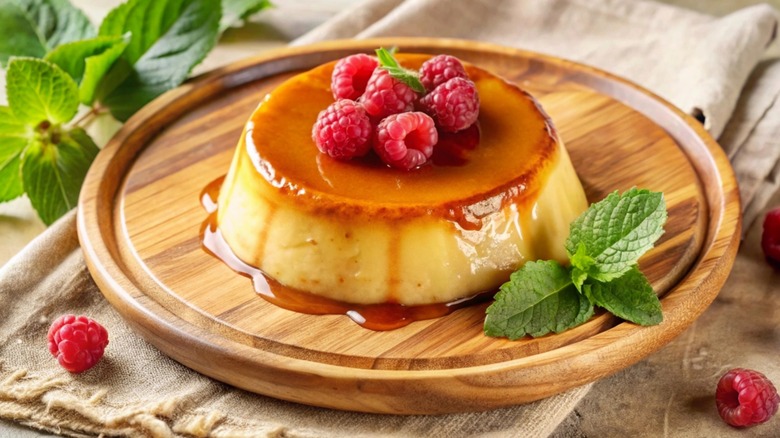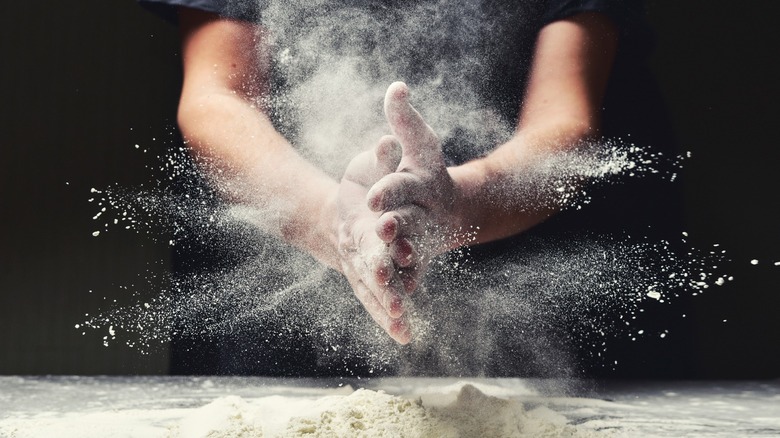Is Flan Considered Gluten-Free?
For people with gluten intolerances, finding trustworthy things to eat can be challenging. Most folks have no issues processing the protein found in wheat, rye, barley, and other grains. Yet, for some who have trouble digesting it, gluten can cause symptoms like diarrhea, skin irritation, and intestinal damage. Some surprising foods like sourdough bread might be okay for people with gluten sensitivities, but one can only be sure of that after closely looking at the elements that compose it. With flan — as with any other food — careful scrutinization of the ingredients is the only way to know if flan is gluten-free.
The good news for folks with gluten sensitivities is that — unless the typical recipe is significantly altered or there's cross-contamination — nothing in flan contains gluten. The creamy dessert consists of sugar, eggs, vanilla, and milk or cream, none of which house the questionable protein. After slowly melting sugar to avoid burning the caramel sauce and not mistakenly overmixing the flan, it gets tossed into the oven until it boasts a glossy finish and velvety smooth texture. At no point does any product with gluten come in contact with the baked custard. However, even though no ingredients in flan inherently contain the protein, the dessert could come in contact with it depending on where it is made.
Preparation issues may introduce gluten
Ordering flan from a restaurant (or any food, for that matter) comes with some risk for folks with gluten intolerances. Commercial kitchens don't always have a separate space designated for gluten-free cooking. That means any utensil used for making the baked custard that is shared for another recipe that does contain the protein could cross-contaminate the dessert. Even something as innocuous as having bread in the building could potentially contaminate a flan. Unfortunately, it is not just restaurants to be wary of. Pre-packaged flan from grocery stores and other establishments may have gluten for the same reasons. If the factory where it is produced uses shared spaces for cooking, there is no guarantee the flan is safe for people with an intolerance to gluten.
Folks with minor sensitivities might not have any problems eating flan that has been slightly contaminated with gluten, but people with celiac disease need to be extra cautious. The accepted safe amount of gluten for someone with the autoimmune disorder is only 20 parts per million. That makes it vital for those individuals to double-check that no utensils were shared when the flan was made so they don't experience significant discomfort after enjoying the creamy dessert.

